Tag archives: China
Documentary explores the history of astronomy in China
By James Dacey
A new documentary explores the development of astronomy in China, taking viewers from the protoscience of ancient China through to the nation’s ambitious space exploration programmes of today. Directed by Beijing-based filmmaker René Seegers, the film has recently been broadcast on Shanghai Television along with screenings at a range of academic institutions, cultural and scholarly societies and embassies throughout China. Now, you can watch the film on the Physics World YouTube channel (with English subtitles).
“The Ancient Chinese believed that Heaven was a power, or a deity, which judged humans. Heaven was responsible for weather and for natural disasters. It was not a realm accessible to humans,” explains Ying Da, the documentary’s presenter. Ying is a media personality who shot to fame in China for directing the family sitcom I Love My Family (1993–1994).
Of course, in recent times Chinese scientists and engineers have taken a much more proactive approach to understanding the cosmos. Since the People’s Republic of China launched its first satellite in 1970 (Dong Fang Hong I), the nation has been ramping up its space programmes. The documentary takes viewers to observatories and the final construction phase of the Five-hundred-meter Aperture Spherical Telescope (FAST), the largest single-dish radio telescope on Earth. It also joins Chinese scientists in Antarctica and explores the leading role China is playing in the construction and operation of the Thirty Meter Telescope in Hawaii.
View all posts by this author | View this author's profile
Physics World’s latest special report on China is out now
By Michael Banks
The pace of change in China can be bewildering – and science is no exception. With every year that goes by, the country publishes more papers, spends more cash on research and opens up yet more world-class facilities.
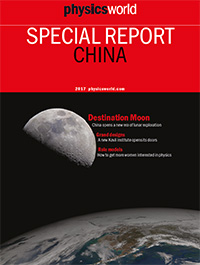 This is the third Physics World special report on physics in China – following publications last year and in 2011.
This is the third Physics World special report on physics in China – following publications last year and in 2011.
Most of this year’s report was based on an action-packed schedule of visits and interviews earlier this year at institutes and labs in Shanghai and Beijing.
Speaking to researchers during my travels, it became clear that China is reaping particular benefits from its 1000 Talents programme, which seeks to persuade top Chinese researchers who have spent time abroad to return home. Such scientists are bringing huge experience back and using it to put China at the forefront of many fields of research.
China is also showing a growing appetite to attract foreign scientists who have not worked there before. Getting overseas researchers to move to China is not always easy, so one solution has been for China to encourage Western institutions to branch out into the country. The Kavli Foundation, for example, has just opened a new Kavli Institute for Theoretical Sciences in Beijing, which aims to have about a third of its faculty from outside China.
View all posts by this author | View this author's profile
Building bridges with the west
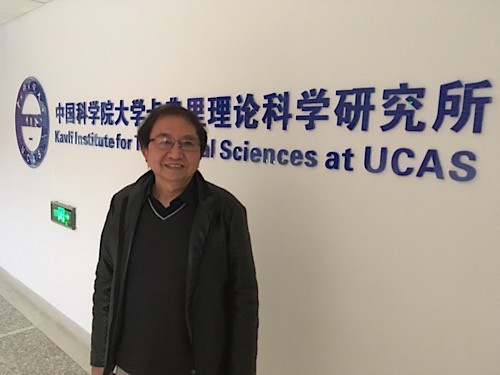
Physicist Fuchun Zhang, director of the Kavli Institute of Theoretical Sciences.
By Michael Banks in Beijing, China
It’s my final day in Beijing and keeping up with the daily weather reports, it is still raining. But that is better than the snow that was forecast only a couple of days ago.
My time in Beijing has been short, but packed full of interesting discussions with researchers.
Yesterday I headed to the Beijing Institute for Nanoenergy and Nanosystems. Today, I visited the theoretical condensed-matter physicist Fuchun Zhang, who is director of the Kavli Institute of Theoretical Sciences (KITS).
View all posts by this author | View this author's profile
A blue energy dream
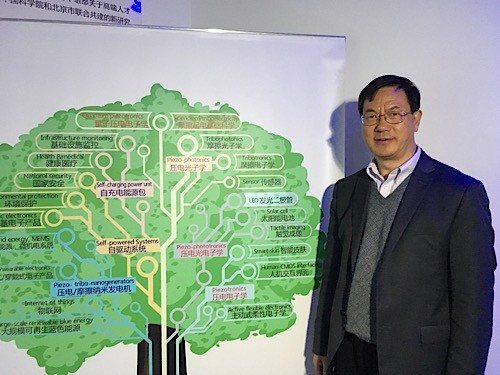
Zhong Lin Wang, director of the Beijing Institute of Nanoeergy and Nanosystems.
By Michael Banks in Beijing, China
I was told that it wouldn’t rain much in Beijing, a city known for its dry air – and pollution.
But since I arrived here last night courtesy of the bullet train, all I have seen is drizzle. The wet weather also made it a challenge during rush hour, but I finally made it to the Beijing Institute for Nanoenergy and Nanosystems (BINN).
I met with BINN’s director, Zhong Lin Wang, who has been in the US for more than 39 years, most of which has been spent at the Georgia Institute of Technology. While he is still affiliated to Georgia Tech, he came back to China in 2012 to establish BINN.
View all posts by this author | View this author's profile
Shanghai round-up
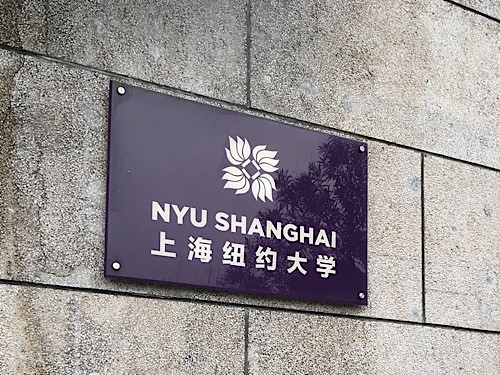
NYU Shanghai is the first Sino–US joint-venture university
By Michael Banks in Shanghai, China
It’s been a busy three days in Shanghai and now I’m on my way to Beijing to continue reporting for the China special report, which will be published in June.
As I mentioned in previous blog posts, Shanghai has thrown up some interesting stories. I heard about plans for a new 12 m telescope and also received a progress update on the construction of a new X-ray free electron laser in the city.
View all posts by this author | View this author's profile
China outlines free-electron laser plans
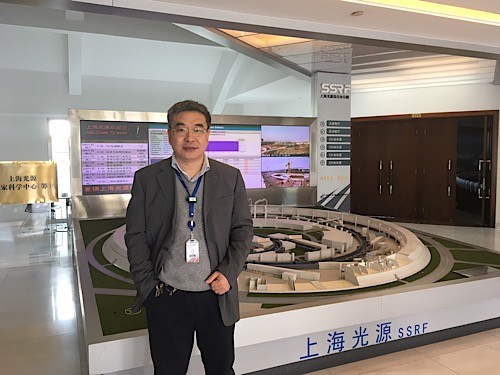
Zhentang Zhao, director of the Shanghai Institute of Applied Physics.
By Michael Banks in Shanghai, China
There was a noticeable step change in the weather today in Shanghai as the Sun finally emerged and the temperature rose somewhat.
This time I braved the rush-hour metro system to head to the Zhangjiang Technology Park in the south of the city.
View all posts by this author | View this author's profile
Chinese astronomers pin their hopes on LOT
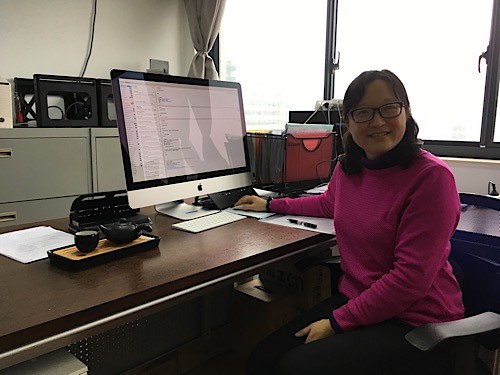
Lei Hao from the Shanghai Astonomical Observatory.
By Michael Banks in Shanghai, China
It was a cold, rainy day here in Shanghai, so coming from the UK, I felt right at home.
Jumping into a Shanghai taxi to avoid the downpour, I headed to the Shanghai Astronomical Observatory, belonging to the Chinese Academy of Sciences, to meet astronomer Lei Hao.
View all posts by this author | View this author's profile
China bound
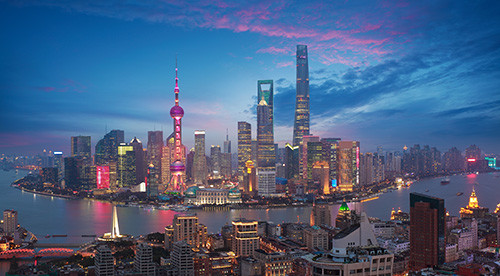
Courtesy: Shutterstock/ArtisticPhoto
By Michael Banks
I am heading to China tomorrow for a five-day trip in what promises to be a fascinating update on some of the physics that is being carried out in the country.
The purpose of my journey is to gather material for an upcoming special report on China, which will be published later this year.
View all posts by this author | View this author's profile
Physics in Beijing – a photo tour
By James Dacey
Late last year, I visited the fast-growing physics powerhouse of Beijing, China. Along the way I took snapshots of the people, events and labs I visited – a selection of which I’ve put together here to share my highlights.
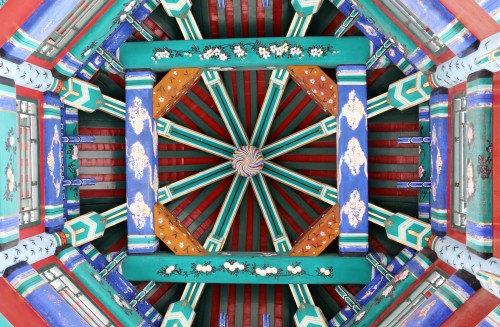
ATLAS lookalike: Colourful pavilion ceiling resembles particle detector.
During a break from the serious business of science journalism, I visited Beihei Park, a 1000-year-old former imperial park close to the Forbidden City in central Beijing. While looking up at this ornate pavilion ceiling, I couldn’t help being reminded of the ATLAS detector at CERN.
View all posts by this author | View this author's profile
The Science of Heaven
By Richard de Grijs in Beijing
Good things come to those who wait. Indeed, it has been almost six years since we initially thought about making an astronomy documentary set in China – and we finally showed it in public last month. The Science of Heaven premiered on 30 November 2016 at my institution, the Kavli Institute for Astronomy and Astrophysics at Peking University. By all accounts, it was very well received. While we are ironing out some final issues before releasing it publicly in early 2017, you can watch the trailer (above).
View all posts by this author | View this author's profile